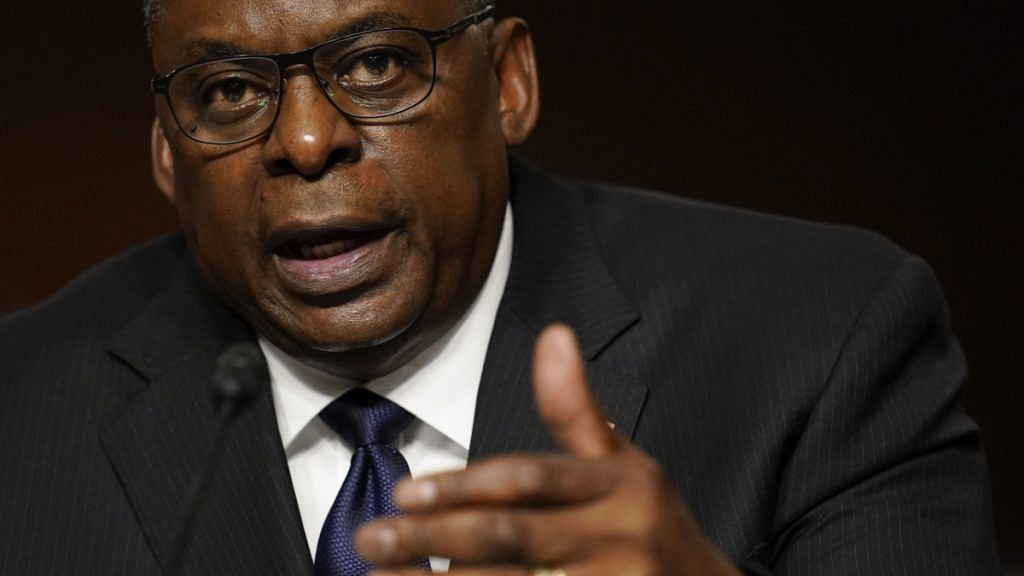New Delhi: India’s growing military capability and technological prowess can be a stabilising force in the Asia-Pacific, US Defence Secretary Llyod Austin said Saturday, while red flagging China’s hardening position at the Line of Actual Control (LAC).
Speaking at the Shangri-La Dialogue in Singapore — organised by the International Institute of Strategic Studies, London — Austin said China is adopting “a more coercive and aggressive approach to its territorial claims”.
“We remain open to future diplomacy — and fully prepared to deter and defeat future aggression,” the US defence secretary said, adding that “We’ll also continue to stand by our friends as they uphold their rights”.
Austin also said China is pushing limits in the East China Sea and South China Sea.
“Further to the west, we’re seeing Beijing continue to harden its position along the border that it shares with India… Indo-Pacific countries shouldn’t face political intimidation, economic coercion or harassment by maritime militias,” he said.
Talking about Taiwan, Austin said the US will continue to fulfill commitments under the Taiwan Relations Act, including assisting Taiwan in maintaining a sufficient self-defense capability.
“And it means maintaining our own capacity to resist any use of force or other forms of coercion that would jeopardise the security or the social or economic system of the people of Taiwan,” he said.
Observing that China needs to act accordingly, Austin added, “We’re seeing growing coercion from Beijing… We’ve witnessed a steady increase in provocative and destabilising military activity near Taiwan. We remain focused on maintaining peace, stability, and the status quo across the Taiwan Strait. But the [People’s Republic of China’s] moves threaten to undermine security, and stability, and prosperity in the Indo-Pacific. That’s crucial for this region, and it’s crucial for the wider world.
The US defence secretary added: “Maintaining peace and stability across the Taiwan Strait isn’t just a U.S. interest. It’s a matter of international concern.”
Also read: What’s Combined Military Forces-Bahrain? US-backed coalition India joined on Quad sidelines
‘Indo-pacific at heart of interconnected world’
He underlined that the United States does not want conflict or confrontation, a new Cold War or a region split into hostile blocs, but “We’ll defend our interests without flinching”.
Adding that the Indo-Pacific is at the heart of this interconnected world, Austin said events halfway around the world resonate throughout the region.
Noting that the Indo-Pacific comprises more than 50 per cent of the globe, he said defending the area requires investment, and the United States is doing just that.
The US defence secretary said the budget request for the 2023 fiscal year makes one of the largest investments in history to preserve this region’s security, including a USD 6.1 billion for the Pacific Deterrence Initiative, to strengthen multilateral information-sharing and support training and experimentation with partners.
The budget also looks to encourage innovation across all domains, including space and cyberspace.
These new capabilities combined with U.S. presence and partnerships mean integrated deterrence for the region. This benefits treaty allies and partners. In this, Austin specifically mentioned India. “We believe that [India’s] growing military capability and technological prowess can be a stabilising force in the region,” he said.
(Edited by Poulomi Banerjee)
Also read: Quad meant not giving other nations a veto on India’s choices, says foreign minister Jaishankar
